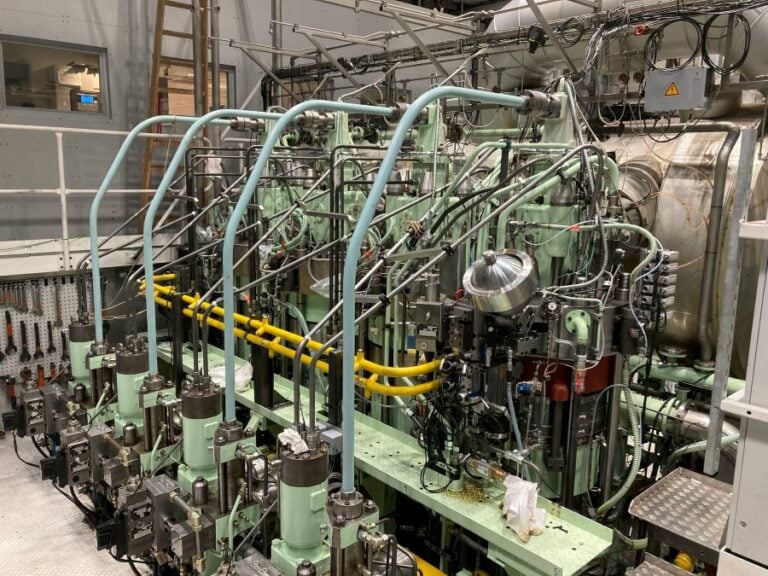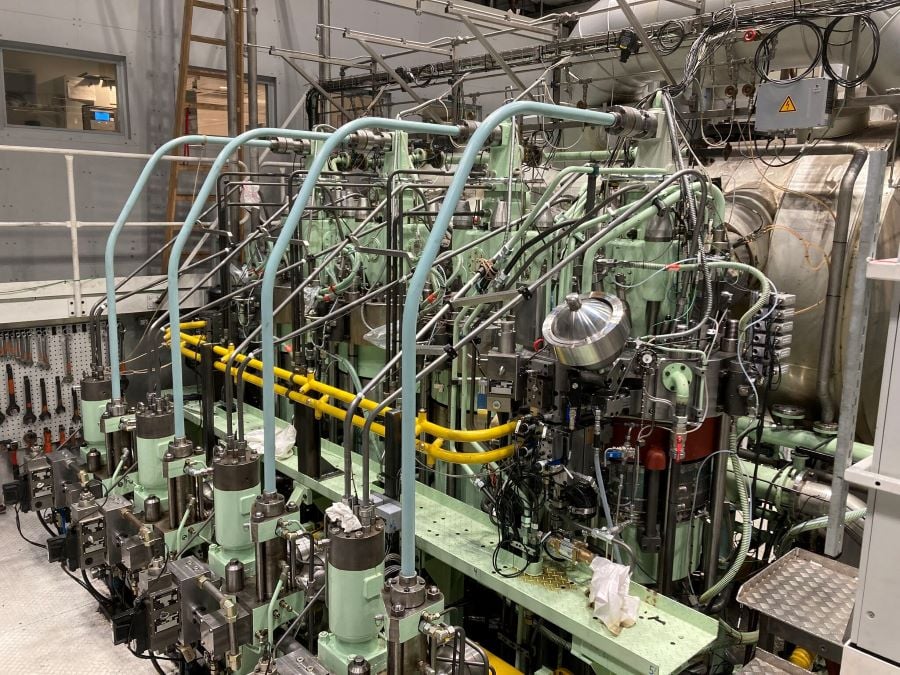Next on the horizon: A naming ceremony for an ammonia-powered ship?
Home Green Marine Next on the horizon: A naming ceremony for an ammonia-powered ship?
Thursday witnessed a momentous occasion in the annals of container shipping, one that reverberated with promises of greener, more sustainable days ahead for the maritime industry. The naming ceremony of the world’s first methanol-powered containership, the Laura Maersk, took center stage, signifying a propulsion revolution that is poised to reshape the future of global shipping.

But, as we celebrate this groundbreaking achievement, a burning question emerges: What lies next on the horizon? Could it be ammonia, the harbinger of an even cleaner, more environmentally responsible era in maritime transport?
Speaking yesterday on the sidelines of the naming ceremony, Uwe Lauber, CEO of MAN Energy Solutions, declared that ammonia-powered ships are on the horizon, ushering in a new era of sustainable maritime transportation.
Lauber expressed confidence that within five years, the world would witness the realization of this ambitious vision, signaling a remarkable shift toward eco-friendly propulsion in the shipping industry.
Ammonia, a zero-carbon fuel, has long been touted as a potential game-changer in the quest to reduce emissions in the maritime sector. As international regulations become increasingly stringent and the pressure to decarbonize intensifies, ammonia-powered ships are emerging as a promising solution.
“In five years from now, I think we’re going to do the next step with MAN Energy Solutions. We will bring emission reduction to the next level because the regulations are showing us the path to 2050 to reach zero emissions,” Lauber said.
MAN Energy Solutions is on a mission of delivering the shipping industry its first ammonia-powered two-stroke engine by 2024, followed by a retrofit package for the gradual rebuild of existing maritime vessels by 2025.
In July 2023, the company completed successful combustion on its two-stroke ammonia engine at its Research Centre Copenhagen (RCC) as part of planned engine tests.
The successful combustion was performed on a MAN B&W two-stroke 4T50ME-X type and produced positive results with particularly promising data regarding pilot-oil amount and combustion stability, MAN said.
MAN ES highlighted that it broadly expects to hold its delivery timeline for the first ammonia engine, with subsequent operation onboard a commercial vessel from around 2026.
As such Launber expects MAN Energy Solutions to pave the way for a sustainable future in maritime transport.
“Maybe in five years from now,” he continued, “we will do a naming ceremony with a ship equipped with an ammonia engine. We are on the way, we are prepared, and it’s the team who’s going to make it happen.”
The maritime industry has been under increasing pressure to reduce its carbon footprint and align with global climate goals, including those set forth in the International Maritime Organization’s (IMO) decarbonization strategy, which aims to achieve a zero-emission industry by 2050.
Ammonia, with its potential to produce zero greenhouse gas emissions when used as a fuel, is a frontrunner in the race to decarbonize shipping.
While ammonia holds immense promise as a maritime fuel to drive sustainability in the shipping industry, it is not without its share of challenges.
Efficient and reliable ammonia combustion engines are still under development, and optimizing them for maritime use is a complex task. Scalability is another issue; ensuring a consistent supply of ammonia to meet the demands of the global shipping fleet is a logistical challenge that needs to be addressed.
Moreover, safety concerns surrounding the handling, transport, and storage of ammonia, which is a hazardous chemical, must be carefully managed to prevent accidents and ensure crew and environmental safety.
Furthermore, there is a lack of prescriptive rules and regulations for handling ammonia making it difficult to plan for its implementation on board. This lack of regulatory development is also causing issues for the adoption of hydrogen as a fuel.
Overcoming these challenges is imperative for ammonia to become a mainstream and viable option for powering the ships of the future.
